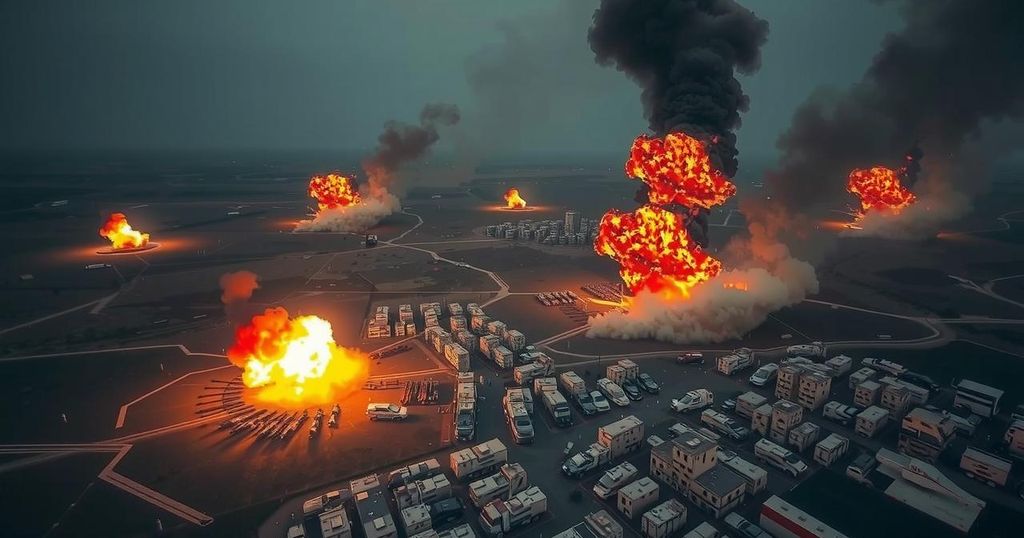Rockets hit central Israel, injuring eleven individuals as the Pentagon boosts military support to the region. U.S. Secretary of State Antony Blinken discussed regional de-escalation with Israeli Minister Ron Dermer. The Lebanon-Syria border crossing was temporarily closed due to an Israeli strike, underscoring heightened tensions in the area.
Rockets struck central Israel, resulting in injuries and significant damage, as tensions in the region escalate. On Saturday morning, sirens warned residents in the cities of Herzliya, Ra’anana, Kfar Saba, and Tira, leading to eleven injuries and emergency rescue operations conducted by firefighting teams to extract individuals trapped under debris. Magen David Adom confirmed that all injured individuals were transported to Meir and Bellinson Medical Centers for medical attention. In parallel, the Pentagon announced the deployment of additional military assets to the Middle East, including ballistic missile defense destroyers, fighter jets, tanker aircraft, and several B-52 long-range bombers, which are expected to arrive over the coming months. This deployment coincides with the USS Abraham Lincoln carrier strike group’s preparations for departure toward the region. Further complicating the situation, the border crossing between Lebanon and Syria was temporarily closed following an Israeli airstrike, as confirmed by Lebanese Public Works and Transportation Minister Ali Hamie. Though the crossing was briefly shut down, it later reopened for private vehicles. In the context of regional diplomacy, U.S. Secretary of State Antony Blinken held discussions with Israeli Strategic Affairs Minister Ron Dermer, urging for steps toward regional de-escalation and emphasizing the necessity for a comprehensive post-conflict plan that ensures governance, security, and reconstruction efforts. Blinken reaffirmed the United States’ steadfast support for Israel amidst ongoing humanitarian concerns in Gaza.
The unfolding crisis between Israel and Hamas has escalated significantly since October 7, when Hamas launched a major offensive, leading to widespread violence and casualties. This conflict has resulted in the deaths of over 1,200 individuals, including both Israeli citizens and foreign nationals, with numerous others taken hostage by Hamas militants. The ongoing instability in the region is marked by retaliatory military actions, such as airstrikes and rocket attacks, which have created a complex humanitarian situation, particularly in Gaza. International diplomatic efforts are focusing on reducing hostilities and addressing the humanitarian needs arising from the conflict.
The recent attacks in central Israel and subsequent military deployments by the Pentagon highlight the escalating conflict in the region. With injuries reported and a temporary border closure following Israeli airstrikes, the need for a diplomatic resolution has become increasingly critical. As discussions continue between U.S. officials and Israeli leadership regarding de-escalation and humanitarian concerns, the situation remains volatile, emphasizing the urgency for effective governance and security post-conflict.
Original Source: www.jpost.com






